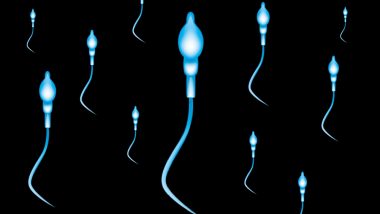Cancer treatments like chemotherapy have been known to adversely affect male fertility. Chemo works by killing off cells that divide rapidly, a trait seen in cancer cells. Therefore, it can target any cell type that divides quickly, which includes sperm cells. But according to a new study published in the Annals of Oncology, one course of chemotherapy won’t affect male fertility by reducing sperm count in those with early-stage testicular cancer. Infertility in Men: Sperm Quality Getting Worse, Could Cause Extinction of Humankind, Says Study.
The effects of multiple rounds of chemotherapy or high doses of radiation are well-known in men who are at an advanced stage testicular cancer. But what the medical science didn’t know was the effect of a single dose on the sperm quality of men who are at stage I.
The lead author of the study, Dr Kristina Weibring at Karolinska University in Stockholm, Sweden says that the team wanted to examine the effects of a post-operative treatment like chemo and radiation after removing the tumour.
A total of 182 men between 18 and 50 who have been diagnosed with stage I cancer and had undergone an orchiectomy. They were given radiotherapy and one course of chemotherapy after the surgery. The subjects provided semen samples after the surgery but before any further treatment, then after six months, one year, two years, three years and five years. From 2006 onwards, subjects stopped receiving radiotherapy because it was seen as a secondary cause of cancer.
Irrespective of the type of treatment the subjects received, the researchers found that there were no significant adverse long-term effects in total sperm count or concentration. Sperm Count in Sons of Fathers Who Smoke is 50% Lesser! 7 Other Things That Affect Male Fertility.
But in men who received radiotherapy, there was a distinct decrease in the average sperm count and concentration after six months since treatment. The same was not observed in men who received chemotherapy. However, sperm count and concentration went back to normal radiotherapy group after six months, and continued to increase in all groups up to five years.
The study can give more insights into the potential side effects of postoperative treatment.
(The above story first appeared on LatestLY on Feb 25, 2019 06:11 PM IST. For more news and updates on politics, world, sports, entertainment and lifestyle, log on to our website latestly.com).













 Quickly
Quickly


